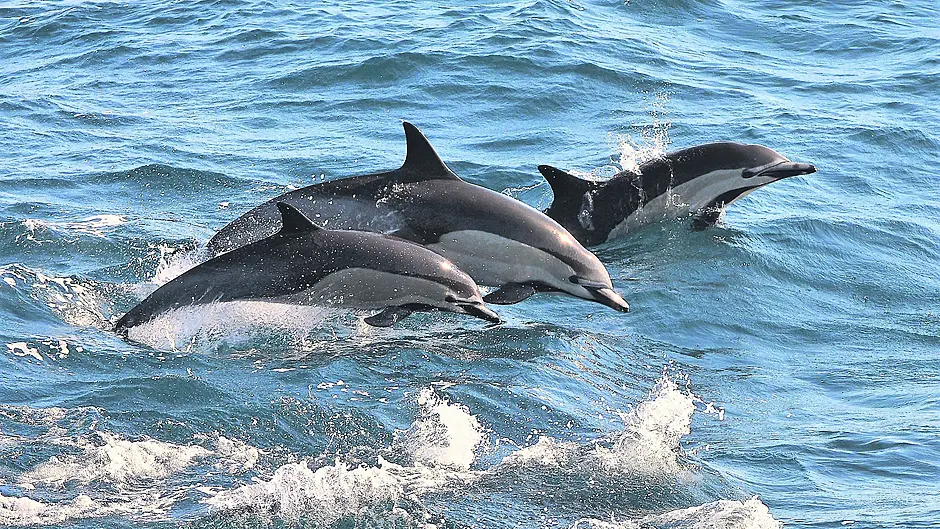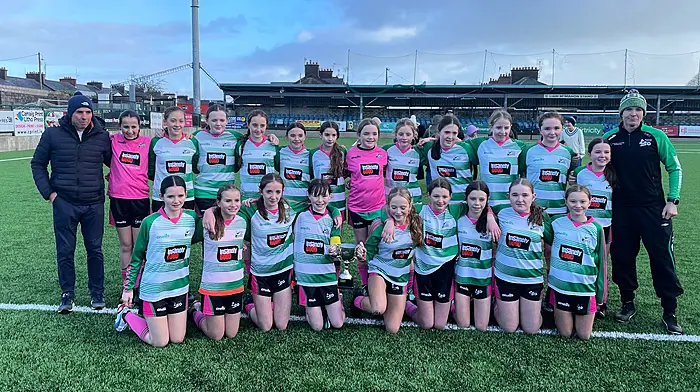NEW applications for fish farms may see them confined to land, under new legislation which will designate Marine Protected Areas (MPAs) around the Irish coast, a meeting in West Cork was told recently.
Marine environmentalists, under the Fair Seas umbrella group, held a meeting in Skibbereen to seek support for stronger protection of our coasts and marine life.
The MPA Bill currently being finalised aims to have 30% of Irish waters protected by 2030 – an area twice the size of the State’s landmass.
Members of the Irish Whale and Dolphin Group (IWDG) urged the audience to lobby local TDs and other politicians to ensure stronger protection for our marine life in advance of the Bill becoming law, saying many species were seeing a decline, especially along the south coast.
A marine survey conducted on the IWDG boat Celtic Mist around the south coast last summer recorded zero sightings of the humpback whale, for example, during the 350 hours of the survey. And there also appears to be a big decline in harbour porpoises in Roaring Water Bay since 2016.
During the meeting, which was attended by interested parties, including representatives of the fishing industry, Bantry-based Dolf D’Hont, the chair of the Fair Seas steering group, said the new laws may see future fish farm projects being confined to land.
He also challenged suggestions from fishing representatives that a cull of our 25,000 seals would improve fish stocks.
Michael Desmond of the National Inshore Fishermen’s Association said that seals accounted for 100,000 tonnes of fish being taken from the sea each year and that a curb on fishing several fish species 20 years ago had not resulted in any improvement in those same fish stocks.
‘If we cull the seals, it may not help,’ said Mr D’hont. ‘It may just move the focus to whales and dolphins and seabirds. We will just be blaming something else then.’
Mr Desmond also queried the funding for the IWDG which, he alleged, came partially from consultancy work for big energy firms.
In response, Stephen Comerford, IWDG marine policy officer, said the group’s accounts were published online and were totally transparent. He said the consultancy work helped to fund salaries of staff.
‘We work for lots of different people,’ he said.
He also denied that the surveying or construction of the offshore windfarms was damaging to fish stocks. He said the areas being surveyed were very narrow and the equipment frequencies used were ‘too high for whales and dolphins to hear it’.
He said the surveyors are working under national guidelines, so that when they are doing their surveys they ‘do their best to make sure there are no animals around’. When drilling for sampling, they use ‘quite small diameter drills and they are not very loud’, he said.
‘People were doing that up and down the Porcupine Bank, for oil and gas for years, and nobody seemed to give a sh**te except for the IWDG,’ he added.
He said people were ‘discussing this stuff on social media and were not that well informed’ perhaps, and they see effects and think they are being driven by one thing and ‘hand on heart, it’s very unlikely that it is.’
The website of IWDG Consulting lists the following among its clients: oil and gas exploration firm Providence Resources and gasfield operator Kinsale Energy.








